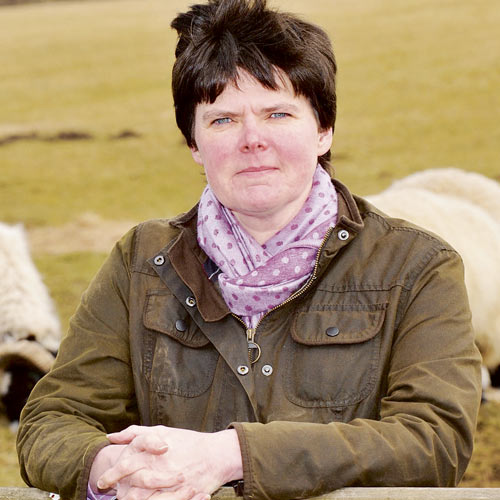Opinion: Save us from tofu and chickpea curry
 Elizabeth Elder
Elizabeth Elder “Britons should eat less beef and lamb and obtain more of their calories from vegetables … according to a government report.”
This was a Times headline from the end of January, which no doubt had a number of people choking on their lunchtime mince and tatties.
Which government department was responsible? Health? No. Surely, not Defra? No.
What do you think about this topic? Have your say on our website forums
Of course, it emanated from the Department of Energy and Climate Change (Decc), making a late bid to cement its place in my heart as the most useless department in the current government.
Delving deeper into the story, I assumed it was going to have something to do with flatulence – among cattle, not the civil servants – but not on this occasion. Instead, they seem to have come up with a new theory.
Apparently, “switching from beef consumption can significantly reduce the land required to produce food. Currently an area the size of a football pitch can be used to produce 250kg of beef, 1,000kg of poultry or 15,000kg of fruit or vegetables.”
I think that would rather depend on the type of ground. Good luck with producing 15,000kg of fruit and veg on any football-pitch-sized portion of our farm. All we have managed is four rows of potatoes and two courgette plants on a patch of the garden which we have built up with topsoil, compost and muck over many years.
Our farm can produce beef and lamb fed on grass, but not grain, fruit or vegetables. It’s obvious – it’s a hill farm.
But is the report really suggesting that farmers are keeping vast herds of suckler cows on Grade 1 arable land, attracted by the marginal profitability and the epic cashflow cycle, when they could be growing crops instead?
Well, no, not really. What the report advocates is producing higher volumes of crops and lower volumes of meat a lot more intensively, with meat (poultry, pork and beef) produced in sheds and crop yields rising by 40% to 60%.
The land previously used for livestock grazing would then be planted with trees, which would absorb carbon dioxide to enable the UK to hit climate change targets.
I was half expecting to find that the report was the work of Mad Jack McMad, winner of last year’s Mr Madman competition, but it turns out that the plans have come out of something called the Global Calculator. This is an attempt to model the world’s energy, land use and food systems and Decc seems to find it credible.
As an accountant, I was taught that you should always apply a logic check to anything produced by a calculator. If the outcome doesn’t seem right, it is probably the wrong answer.
Covering all non-arable land in trees or sheds cannot be the right answer. The report ignores the fact that the most environmentally friendly method of beef production is where the cows eat grass instead of soya or corn. Feed-lot beef is the type associated with the deforestation decried by environmentalists.
Furthermore, it would mean the end of the verdant pastures of the English countryside and their replacement by horrible, midge-infested forestry.
The one benefit might be that it would hide the vastly over-subsidised, low energy producing, environment-scarring windmills that are the main legacy of Decc to date.
Ultimately, we need to consider whether making these radical changes in land use would prolong life on the planet. I suspect the answer is not necessarily, but if we all had to live on a diet of tofu and chickpea curry, it might just seem that way.
Elizabeth Elder
Elizabeth and her husband Jake run sheep and cattle on 235ha of hill ground on the Otterburn Firing Range in Northumberland.

